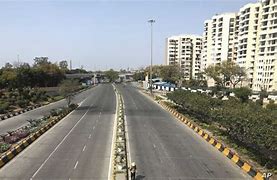National
Modi budget fails to cheer scientists

Bengaluru: The national budget presented by Finance Minister Arun Jaitley has been hailed as “growth oriented” by the corporate sector, but Indian scientists seem not too enthused and say the much-touted “achhe din” (good days) are yet to arrive.
According to the budget documents, the government has provided Rs.356 billion ($6 billion) for research to various departments in the ministries of science, atomic energy defence, health, earth sciences, new and renewable energy and space. This allocation is 17.2 percent more than last year’s but is still a mere two per cent of the total Rs.17,775 billion available with the government for expenses this year.
The scientists, who were expecting some big bang announcements and a huge hike for scientific research in the wake of Prime Minister Narendra Modi’s rhetoric in the past, are depressed that Jaitley’s 90-minute speech left no cause for such celebration.
They note that the word science finds only a cursory mention in the 47-page budget document and that, unlike in previous years, science and technology does not get the prominence it deserved.
It is sad that funding for science in India continues to remain sub-optimal, C.N.R Rao, scientific adviser to former prime ministers since 2004 and a Bharat Ratna awardee, lamented. “I do not know what to say except that (our) science continues to be in bad shape due to inadequate funding,” Rao told.
Only 10 days ago, thousands of PhD scholars turned the spotlight on the poor state of research funding through nation-wide protests demanding a hike in the fellowship amount. Noting that no new science projects have been initiated in this year’s budget, Rao said “even existing programmes” are already feeling the crunch.
“My appeal to the prime minister is that even now it is not too late to rectify the mistake and allocate additional funds for science,” Rao said. “The increase required is so small (in comparison to the available total budget) that it will not even be noticed.” He hoped that the science academies in the country would collectively take up the issue.
M. Vijayan, former president of the New Delhi-based Indian National Science Academy and a professor in the Indian Institute of science in Bengaluru, said he too was surprised at science not getting emphasis on allocations in the budget. “The hike in allocation this year is only slight, and our science spending is still hovering around 0.8 per cent of the GDP – far short of the two percent target,” Vijayan told IANS.
The finance minister’s announcement that the government will set up one more IIT in Karnataka and six more institutions of the All India Institute of Medical Sciences-type has not brought any cheer either. Rao says this is a futile exercise “as many such institutions established earlier remain headless and without laboratory facilities”.
But K. Vijay Raghavan, secretary in the department of biotechnology, an incurable optimist, did not think the government has let scientists down. “The budget is good news (for science). No cuts, a modest increase and new opportunities in entrepreneurship,” Raghavan told IANS.
Subhash Lakhotia, professor emeritus at the Banaras Hindu University, cautioned that though the modest increase is good news, “an allocation, by itself, does not mean much unless the amount is really made available in good time”.
Last year, the allocated budget of the government laboratories and grants for research projects were cut by as much as 35 percent. “This feature is a greater worry as it upsets any planning by the agencies,” Lakhotia told IANS.
But the government’s move to establish an Innovation Promotion Platform involving academics, entrepreneurs, and researchers and another mechanism called SETU (Self-Employment and Talent Utilisation) to support all aspects of start-up businesses in technology-driven areas has been widely welcomed.
“If administered well, these steps can act as a force multiplier for both the Make in India initiative and for employment generation,” Bhaskar Ramamurthi, director of the Indian Institute of Technology-Madras, told IANS.
National
Foodman Vishal Singh Honored for Hunger Free World Mission in Bangkok

Lucknow: Vishal Singh, a renowned social worker from Lucknow, also known as Foodman, has once again made India proud. He was honored by the Happy Hands Gloves Cooperative Limited Company in Korathai, Thailand, for his work with the Hunger Free World Mission.
The Hunger Free World Mission’s meeting was held in Korathai, Thailand, under Vishal Singh’s leadership. Representatives from several countries, including Mr. Raja Dwivedi (Managing Director of Happy Hands Gloves Limited), Thailand Coordinator Mr. Raja Mishra, and member Mr. Varun Singh, attended the event.

Under Vishal Singh’s leadership, the attendees took a pledge to work together toward creating a hunger-free world.
Speaking on the occasion, Vishal Singh explained that the main goal of the Hunger Free World Mission is social participation. He said the mission is not just about feeding people but also about meeting other basic needs of those who are struggling. The mission focuses on helping families of terminally ill patients in hospitals by providing food and shelter. It also works to fulfill essential needs like education, jobs, and care for the elderly.
For the last 16 years, the Vijay Sri Foundation has been providing free services, benefiting thousands of people. Vishal Singh highlighted that the mission aims to gain global recognition like other organizations such as WHO, WWF, and Red Cross, which work for social causes.
During this meeting, Vishal Singh was appointed as the Chairman of the Hunger Free World Mission by representatives from various countries. They also discussed holding regular meetings in different countries to push the mission forward.
Business tycoon Dr. Abhishek Verma has also supported this humanitarian mission, vowing to promote the idea of “Seva Parmo Dharma” (Service is the highest duty) worldwide. Vishal Singh praised him, stating that people like Dr .Abhishek Verma inspire others to work for the betterment of society.
Recently, Romania’s Ambassador, Mr . Daniela Sezonov Ţane, invited Vishal Singh to the Romanian Embassy in Delhi, where they discussed the mission in detail. Impressed by his humanitarian work, she honored Vishal Singh and invited him to Romania to take the mission forward .
Food man Vishal Singh has been serving the people of India for the past 16 years. Through the Vijay Sri Foundation, he provides free meals to cancer patients & their families ,shelter, and education for women & children along with running free old-age homes in Lucknow.
In addition to his humanitarian work, Vishal Singh also addresses issues like crime and corruption through his role as Chairman of Seva Path Media and Managing Director of Vijay Sri Foundation.

During the COVID-19 pandemic, Vishal Singh and his team worked tirelessly to provide food and help to the needy, including starving children, elderly citizens, and pregnant women. Despite contracting the virus himself, he continued to assist others after his recovery. He even created a life-saving oxygen regulator using household items, which was praised by doctors both in India and abroad.
In his address at the meeting, Vishal Singh spoke about his mission to create a hunger-free world. He pointed out that India’s large population, along with issues like unemployment and poverty, has caused the country to fall on the Hunger Index. He urged people to contribute just one handful of grains daily to help create a hunger-free world.
He concluded by saying that through social participation, we can empower the people around us, meet their basic needs, and work together to build a stronger, more prosperous, and developed society.























